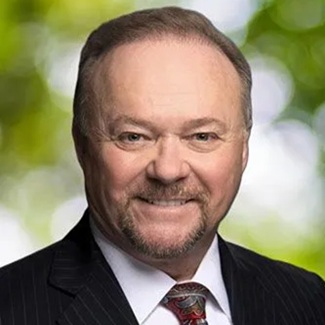Digital Assets Need to Be a Part of Your Estate Plan
With all the electronic bill paying and online banking that goes on today, it's important to make provisions for them. Otherwise, things could get tough for your loved ones later on.


Profit and prosper with the best of Kiplinger's advice on investing, taxes, retirement, personal finance and much more. Delivered daily. Enter your email in the box and click Sign Me Up.
You are now subscribed
Your newsletter sign-up was successful
Want to add more newsletters?

Delivered daily
Kiplinger Today
Profit and prosper with the best of Kiplinger's advice on investing, taxes, retirement, personal finance and much more delivered daily. Smart money moves start here.

Sent five days a week
Kiplinger A Step Ahead
Get practical help to make better financial decisions in your everyday life, from spending to savings on top deals.

Delivered daily
Kiplinger Closing Bell
Get today's biggest financial and investing headlines delivered to your inbox every day the U.S. stock market is open.

Sent twice a week
Kiplinger Adviser Intel
Financial pros across the country share best practices and fresh tactics to preserve and grow your wealth.

Delivered weekly
Kiplinger Tax Tips
Trim your federal and state tax bills with practical tax-planning and tax-cutting strategies.

Sent twice a week
Kiplinger Retirement Tips
Your twice-a-week guide to planning and enjoying a financially secure and richly rewarding retirement

Sent bimonthly.
Kiplinger Adviser Angle
Insights for advisers, wealth managers and other financial professionals.

Sent twice a week
Kiplinger Investing Weekly
Your twice-a-week roundup of promising stocks, funds, companies and industries you should consider, ones you should avoid, and why.

Sent weekly for six weeks
Kiplinger Invest for Retirement
Your step-by-step six-part series on how to invest for retirement, from devising a successful strategy to exactly which investments to choose.
Thanks to the Internet, most companies provide you with the option to receive electronic statements, set up auto payments or pay your bills online. Many businesses are in favor of these methods and support online account management and paperless billing. It’s less expensive, more convenient and more environmentally friendly for them to send out bills via email than it is to mail them to each customer.
One issue with this type of account management is what will happen with these accounts when you die or become incapacitated? Without physical evidence of your bills or statements for your accounts, how will your successor trustee or family members be able to manage your bills or finances when the time comes? How will they know about bills due or money owed if they are unable to access your email or online accounts?
Online profiles with personal information, pictures and contacts are increasingly used by all of us. These include Facebook, LinkedIn, Twitter and Instagram. How are these accounts or digital assets handled upon your death or incapacity?
From just $107.88 $24.99 for Kiplinger Personal Finance
Become a smarter, better informed investor. Subscribe from just $107.88 $24.99, plus get up to 4 Special Issues

Sign up for Kiplinger’s Free Newsletters
Profit and prosper with the best of expert advice on investing, taxes, retirement, personal finance and more - straight to your e-mail.
Profit and prosper with the best of expert advice - straight to your e-mail.
Your estate plan should be designed to make the administration process as easy as possible for your loved ones. This includes making it convenient to manage your assets upon your incapacity or death and saving them the hassle of sorting through your paperwork to collect assets and pay your bills. Without specific provisions in your estate plan and careful planning, access to this critical information can become difficult for your family or loved ones.
Federal law regulating access to digital property does not yet exist. At this time, 29 states have established legislation or laws to protect digital assets and to provide a deceased person’s family procedures and rights to manage those accounts and assets after death.
On Jan. 1, 2017, the Uniform Fiduciary Access to Digital Assets Act (the “Act”) became effective in California. California is one of the many states in the U.S. to adopt this law, which establishes a process for allowing your executor, trustee, power of attorney or court-appointed conservator to access your online accounts after your death. This act also allows you to designate some (or portions) of your account as “off-limits” after your death. This act has been added to the California Probate Code sections 870 – 884. Other states have established separate laws which differ from the Act. The states that have adopted either the Act or other similar laws or legislation include Arizona, Colorado, Connecticut, Delaware, Florida, Hawaii, Idaho, Illinois, Indiana, Maryland, Michigan, Minnesota, Nebraska, Nevada, New Jersey (in progress as of May 1, 2017) New York, North Carolina, Oklahoma, Oregon, Pennsylvania (in progress as of Nov. 19, 2015), Rhode Island, South Carolina, South Dakota, Tennessee, Virginia, Washington, Wisconsin and Wyoming. As laws continue to change this list may change from time to time. Please check with your local legislative branch to determine if your state has enacted this Act.
Your Durable Power of Attorney and your trust instruments should include provisions consistent with California Probate Code sections 870 – 884 or the versions, if any, in effect for your state. These sections provide for naming a fiduciary to act on your behalf for these critical accounts, assets and profiles.
In today’s digital world, most of our financial transactions and communications occur online. Photographs, websites and Internet profiles are now almost expected for all of us. You can do almost anything online, and many people choose to do so. These accounts have limited access with protected passwords, which can create problems when the account holder dies because no one has access to their passwords. Planning now can save a lot of heartache later.
What do you do if you are not in a state of jurisdiction with protective laws? Who gets access to your Instagram, Facebook, LinkedIn or Twitter account when you die? In the absence of protective legislation, those accounts or assets are governed by the terms of the service agreement when the account was opened. Under these agreements, family members would need confidential identification information and passwords. Consider the following steps:
1. Inventory Your Accounts.
Document an inventory of the accounts including login IDs and passwords. That information should be maintained in a secure location.
2. Create an Online Vault.
This would be a place to keep passwords, identification or login information and other sensitive information. Two options are available through Everplans or Dropbox.
3. Establish a Detailed Digital Asset Plan.
This plan would have a clear, specific statement of intent about who would gain access to what information. This statement of intent should address all accounts, past, present and future.
4. Carefully Select Your Trustee, Executor or Representative.
When making your decision, consider the private and confidential information that will be accessible. Oftentimes, the information embedded in the digital assets is highly personal and confidential.
Profit and prosper with the best of Kiplinger's advice on investing, taxes, retirement, personal finance and much more. Delivered daily. Enter your email in the box and click Sign Me Up.

John M. Goralka is Senior Counsel at CunninghamLegal in Sacramento, California. John joined CunninghamLegal because of the firm's high degree of professionalism, commitment to client service and creative ability to provide solutions. For decades, John has helped thousands of families and business owners protect, preserve and pass on their wealth with confidence. Through The Goralka Law Firm, founded in 1996, Mr. Goralka and his team built a reputation for designing practical, tax-efficient estate plans that truly worked when families needed them most. He is one of the few attorneys in California who is dual-certified as a Specialist in both Taxation Law and Estate Planning, Trust & Probate Law by the State Bar of California Board of Legal Specialization.
-
 Farmers Brace for Another Rough Year
Farmers Brace for Another Rough YearThe Kiplinger Letter The agriculture sector has been plagued by low commodity prices and is facing an uncertain trade outlook.
-
 Nasdaq Leads a Rocky Risk-On Rally: Stock Market Today
Nasdaq Leads a Rocky Risk-On Rally: Stock Market TodayPresident Trump said he will decide within the next 10 days whether or not the U.S. will launch military strikes against Iran.
-
 Over 65? Here's What the New $6K Senior Tax Deduction Means for Medicare IRMAA
Over 65? Here's What the New $6K Senior Tax Deduction Means for Medicare IRMAATax Breaks A new tax deduction for people over age 65 has some thinking about Medicare premiums and MAGI strategy.
-
 When Estate Plans Don't Include Tax Plans, All Bets Are Off: 2 Financial Advisers Explain Why
When Estate Plans Don't Include Tax Plans, All Bets Are Off: 2 Financial Advisers Explain WhyEstate plans aren't as effective as they can be if tax plans are considered separately. Here's what you stand to gain when the two strategies are aligned.
-
 Counting on Real Estate to Fund Your Retirement? Avoid These 3 Costly Mistakes
Counting on Real Estate to Fund Your Retirement? Avoid These 3 Costly MistakesThe keys to successful real estate planning for retirees: Stop thinking of property income as a reliable paycheck, start planning for tax consequences and structure your assets early to maintain flexibility.
-
 I'm a Financial Planner: These Small Money Habits Stick (and Now Is the Perfect Time to Adopt Them)
I'm a Financial Planner: These Small Money Habits Stick (and Now Is the Perfect Time to Adopt Them)February gets a bad rap for being the month when resolutions fade — in fact, it's the perfect time to reset and focus on small changes that actually pay off.
-
 Social Security Break-Even Math Is Helpful, But Don't Let It Dictate When You'll File
Social Security Break-Even Math Is Helpful, But Don't Let It Dictate When You'll FileYour Social Security break-even age tells you how long you'd need to live for delaying to pay off, but shouldn't be the sole basis for deciding when to claim.
-
 I'm an Opportunity Zone Pro: This Is How to Deliver Roth-Like Tax-Free Growth (Without Contribution Limits)
I'm an Opportunity Zone Pro: This Is How to Deliver Roth-Like Tax-Free Growth (Without Contribution Limits)Investors who combine Roth IRAs, the gold standard of tax-free savings, with qualified opportunity funds could enjoy decades of tax-free growth.
-
 One of the Most Powerful Wealth-Building Moves a Woman Can Make: A Midcareer Pivot
One of the Most Powerful Wealth-Building Moves a Woman Can Make: A Midcareer PivotIf it feels like you can't sustain what you're doing for the next 20 years, it's time for an honest look at what's draining you and what energizes you.
-
 I'm a Wealth Adviser Obsessed With Mahjong: Here Are 8 Ways It Can Teach Us How to Manage Our Money
I'm a Wealth Adviser Obsessed With Mahjong: Here Are 8 Ways It Can Teach Us How to Manage Our MoneyThis increasingly popular Chinese game can teach us not only how to help manage our money but also how important it is to connect with other people.
-
 Looking for a Financial Book That Won't Put Your Young Adult to Sleep? This One Makes 'Cents'
Looking for a Financial Book That Won't Put Your Young Adult to Sleep? This One Makes 'Cents'"Wealth Your Way" by Cosmo DeStefano offers a highly accessible guide for young adults and their parents on building wealth through simple, consistent habits.